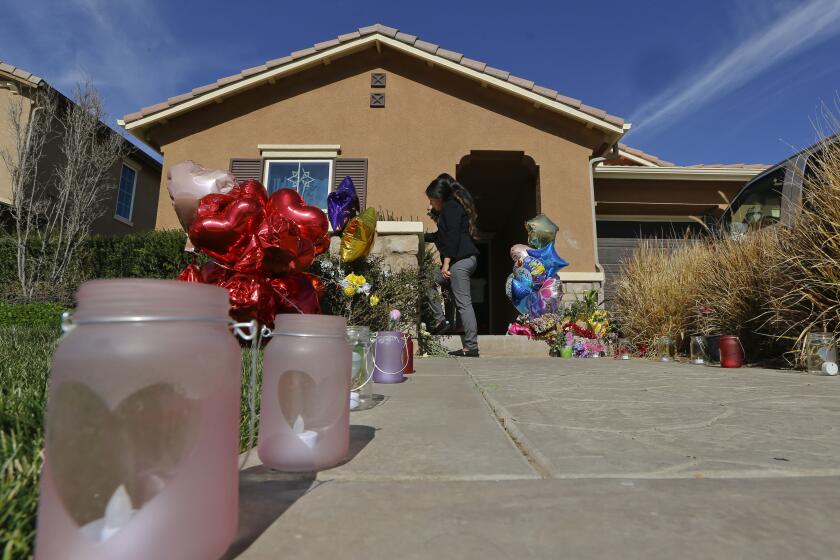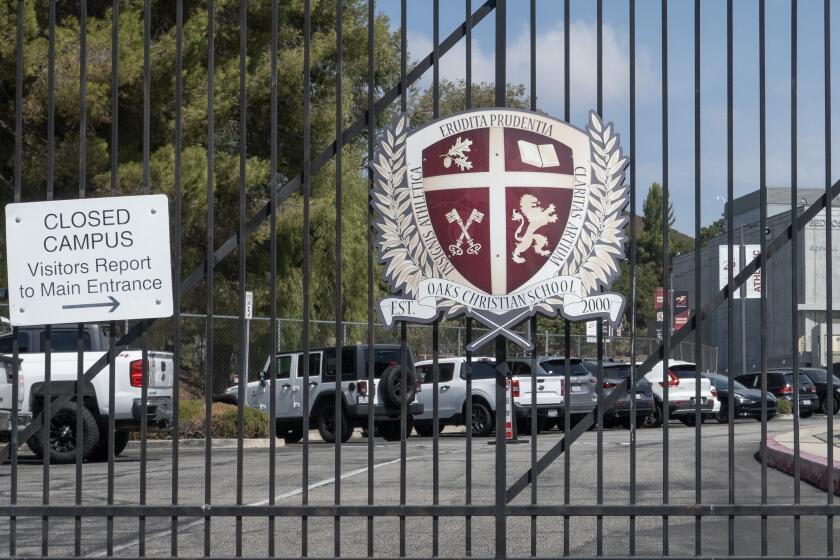LOCAL ELECTIONS / L.A. MAYOR : Katz Strategist Is Among Those Seeking Rail Pact
Mayoral candidate and state Assemblyman Richard Katz’s campaign fund-raising chief is part of a team competing to build a multibillion-dollar, 71-mile rail project--a decision Katz could significantly influence if elected mayor of Los Angeles.
Attorney Peter D. Kelly, a former state Democratic Party chairman, is one of Katz’s top campaign strategists who, among other tasks, is coordinating a major fund-raiser for the assemblyman next month.
At the same time, Kelly’s firm is part of a large business consortium engaged in a highly competitive bidding contest to construct a $3-billion high-speed rail line between the city’s Palmdale and Los Angeles International airports, records and interviews show.
If elected mayor, Katz would appoint four Metropolitan Transportation Authority board members and wield considerable clout over a series of decisions during the next several years on the LAX-to-Palmdale rail line. He has been one of the rail line’s chief proponents.
Kelly’s “heavy participation in Katz’s race . . . creates the perception, if not the reality, of a conflict of interest,” said Ruth Holton, acting executive director of California Common Cause, a watchdog group that tracks government ethics issues.
In addition to fund-raising, Kelly has contributed $1,000--the maximum allowed--to Katz. Records also show that Kelly’s firm, Kelly, Ryan & McAuliffe, has performed about $25,000 in legal services for the assemblyman’s mayoral bid.
Katz denied any impropriety, saying any appearance of conflict is “only hypothetical.”
“He’s raised money for me as a friend. He is not lobbying me. He has not lobbied me,” Katz said. He said he did not know that Kelly’s firm is among the bidders for the rail project, but added that it made little difference because he has opposed some of Kelly’s clients in the past.
“I make my decisions based on the facts,” Katz said.
He added that he would fully comply with state conflict-of-interest laws, which could require him, if elected, to abstain from voting on the rail line for up to a year because of Kelly’s contribution.
However, transit officials say most of the key decisions on the contract would likely come after the conflict period expires.
In addition, Holton noted that the mayor has MTA board influence well beyond his own vote because of the city’s four seats.
Kelly could not be reached for comment, but he has been a key member of the so-called Transit L.A. team bidding on the contract, said John Dyer, an executive with ICF Kaiser Engineers, a lead firm in the group. “Kelly’s been doing a lot of the legal work,” said Dyer, former general manager of the Southern California Rapid Transit District.
Katz has been one of the line’s chief boosters and authored 1990 state legislation that set up guidelines for the project.
The rail line is intended to reduce traffic congestion, particularly around the Los Angeles airport, and encourage greater use of huge tracts of city land near the Palmdale airport. Groundbreaking could take place in the mid-1990s, although major funding questions remain about the project. The MTA has earmarked more than $500 million for the line in its 30-year transit plan, and Katz’s legislation calls for largely private financing of the project. Once built, the transit agency will take over the project and make mortgage payments to the private developers.
Katz also has accepted nearly $20,000 in contributions from people affiliated with the Metro Rail system’s largest subway construction contractor, Tutor-Saliba.
Ronald Tutor, the firm’s owner, lent his Hidden Hills home for an October fund-raiser that raised about $100,000 for Katz.
Several weeks after the event, Katz switched sides in an intense San Fernando Valley debate over whether Metro Rail’s Valley extension should be a subway or an elevated monorail. After long supporting the monorail, Katz caught some officials by surprise when he announced that he favored the subway.
Katz said he was influenced by widespread homeowner and business opposition to the elevated line, not the subway contractor’s fund-raising help.
Tutor-Saliba has been at the center of earlier controversies with transit officials.
The MTA is seeking repayments from Tutor’s firm for what the agency contends are inappropriate billings. Tutor is disputing some of the agency’s findings.
Despite the flap, Katz said he has no plans to return the money because it is unclear whether the firm did anything inappropriate.
More to Read
Sign up for Essential California
The most important California stories and recommendations in your inbox every morning.
You may occasionally receive promotional content from the Los Angeles Times.










